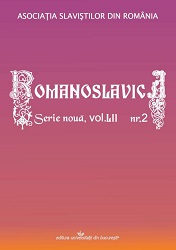Jezična i pragmatična obilježja psovke
Linguistic and pragmatic features of swearing
Author(s): Lada Badurina, Ivo PranjkovićSubject(s): Pragmatics, South Slavic Languages, Structuralism and Post-Structuralism, Philosophy of Language
Published by: Editura Universităţii din Bucureşti
Keywords: swearword; vulgarism; speech act; prop-word; discourse marker;
Summary/Abstract: This text deals with the swearword. In general, little attention is given to swearwords (as well as to vulgarisms, which are closely related to swearwords) in linguistic literature. The reasons for this lie, on the one hand, in the fact that they are grammatically (linguistically) 'unmarked' (i.e. swearwords have no special grammatical structure), and, on the other, in the general lack of interest for communicative aspects of language on the behalf of grammar (and a large segment of traditional, Structuralist approaches to linguistics). As a result, grammatical, but also lexicographic, descriptions/prescriptions ignore these socially and ethically unacceptable, but otherwise quite common, words and expressions. In an attempt to offer an acceptable definition of swearwords – where swearwords are brought into relation with vulgarisms, but also with prop-words and/or discourse markers as special elements of a communicative event and/or discourse – we emphasise their pragmatic roles and traits.
Journal: Romanoslavica
- Issue Year: LII/2016
- Issue No: 2
- Page Range: 227-235
- Page Count: 9
- Language: Croatian

